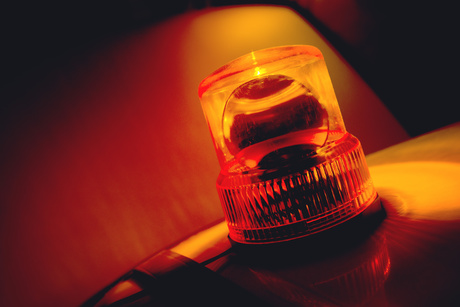Safety is in your hands

After losing count of the number of hoverboard (or ‘segway’) products to be recalled over the past two months or so due to the potential fire risks, it is becoming clear that until we experience a large loss of life, our decision-makers will not take any action to clamp down on the flood of dangerous products entering our market from overseas.
While the United Kingdom’s National Trading Standards consumer watchdog actively enforced its electrical safety laws by confiscating 32,000 dangerous hoverboards (under various brands) in less than two months prior to Christmas alone, exporters of dodgy equipment have now found even more incentive to turn their attention towards Australia, as we continue to accept all manner of goods, no questions asked.
We have earned ourselves the unenviable reputation as a dumping ground — the perfect place for overseas companies that manufacture copies of legitimate brands at a greatly reduced price to offload their wares. The loopholes in our legal framework have made it all too easy for them to leave out costly, quality elements from their products, use rubbish ingredients that cost very little and to completely overlook any need for independent testing. Because they know we will take their goods regardless.
Australian businesses are forking out big dollars to make sure their products are in line with our safety standards, and yet foreign manufacturers are not subject to any of these checks and balances — which are designed to keep consumers safe. They exploit loopholes in our legislation, and are using short-term channels to offload non-compliant goods at an unprecedented rate.
With the electrical industry now awash with products like faulty laptop chargers, cabling with sheathing that breaks down prematurely, solar panels fitted with dodgy isolators and washing machines that keep spinning until they catch fire, it’s abundantly clear that while our elected officials refuse to take action, it’s now up to each one of us to ensure we are doing the right thing by installing only compliant products in our customers’ homes and businesses.
And we are not alone. Other sectors of the construction industry are calling on their tradies to do the same, as the quantity of dangerous products installed in Australian buildings grows ever higher.
At New Year’s Eve we saw images of a Dubai skyscraper engulfed in flames. It turned into a spectacular fireball as at least 20 storeys went up in no time at all. But this fire was all too similar to one at Docklands in Melbourne in late 2014. When Melbourne’s Lacrosse apartment building went up in flames, the fire spread at an alarming speed — jumping 13 storeys in as few as 10 minutes. It’s a miracle nobody was killed.
Initial reports suggest the Dubai building had been fitted with non-compliant, highly flammable cladding — just like the Lacrosse building. Since the Melbourne fire, authorities have discovered that as many as 50 large buildings in Melbourne’s central city could be fitted with similar cladding — putting thousands of people’s lives at risk. And that’s just in one area.
Melbourne’s Metropolitan Fire Brigade (MFB) fire safety director Adam Dalrymple told a Senate Inquiry late last year that the use of this kind of cladding over the last decade means our cities are filled with “ticking time bombs” — an analogy I’ve used dozens of times when discussing the 40,000 or so km of Infinity cables installed in properties across Australia. Mr Dalrymple told the inquiry that MFB held grave concerns about the potential for a disastrous loss of life — a stance we support unequivocally.
He detailed how the Lacrosse fire had irrevocably changed firefighting methods in Australia, warning that due to the flammable cladding, anyone trapped inside a blaze might not be rescued as firefighters may have to be withdrawn for their own safety.
Coupled with the dozens of other products that have now been flagged in the construction industry, including reinforcing and structural steel, concrete, timber products, glass, plumbing products, insulation materials and coating products, we too hold grave concerns for public safety.
As we all continue our fight for swift and decisive action to stop these products at the border, by closing the loopholes in our legislation that are enabling this practice to flourish, we are calling on every contractor to do their bit to ensure the long-term safety of Australians, by always choosing safe, compliant and reputable products.
Should businesses choose in-house or third-party manufacturing?
Companies must evaluate their specific needs, goals and capabilities before committing to a...
Focus on Chris Mattner
From being expelled from high school to leading a trailblazing South Australian electrical and...
Harsh penalties for non-compliant smart tech
Last year, the European Union introduced a new regulation that will affect all manufacturers...




